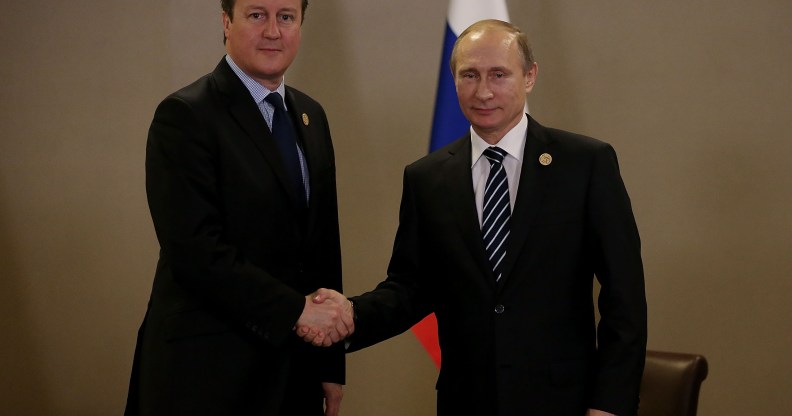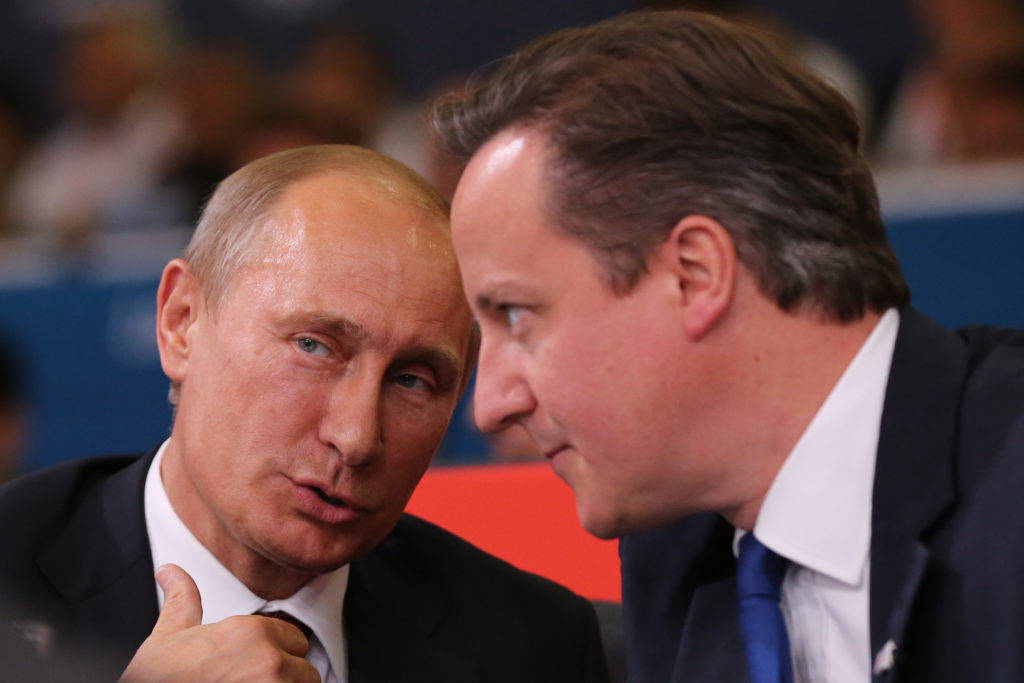Vladimir Putin banned ‘gay propaganda’ to try and boost birth rates, David Cameron claims

Prime Minister David Cameron and Russian President Vladimir Putin (Chris McGrath/Getty)
David Cameron has said that Vladimir Putin imposed a ‘gay propaganda’ law in Russia because he wanted to boost the country’s birth rates.
In his memoir For The Record, the former British prime minister recalled an exchange with Putin, who imposed a divisive law in 2013 banning the “promotion of non-traditional sexual relations” towards minors.
David Cameron recalls ‘icy’ exchange with Vladimir Putin over gay ‘propaganda’ law.
According to The Moscow Times, he wrote: “[Putin] said that Russia’s problem was a declining population, and he needed men to marry women and have lots of children.”
He described the exchange with the Russian leader as “our iciest encounter yet”.
It’s unclear how exactly attempting to stop children from learning about gay people would encourage more people to become pregnant, but the birth rate in Russia has plateaued since the law was imposed in 2013.

Russian President Vladimir Putin with British Prime Minister David Cameron (Jeff J Mitchell/Getty)
A 2017 decision by the European Court of Human Rights found that Russia’s ‘gay propaganda’ law has been exploited to stifle free expression for LGBT+ Russians.
“The very purpose of the laws and the way they were formulated and applied… [has] been discriminatory and, overall, served no legitimate public interest,” the Strasbourg-based court said.
“Indeed, by adopting such laws, the authorities had reinforced stigma and prejudice and encouraged homophobia, which was incompatible with the values of a democratic society.”
Equal marriage was one of David Cameron’s proudest achievements.
Elsewhere in the book, Cameron says he has “absolutely no regrets” about introducing same-sex marriage to England and Wales.
The former Conservative leader said: “Equal marriage was one of the most contentious, hard-fought and divisive issues during my time as prime minister.
“We would lose party members; one even came to my surgery and tore up their membership card in front of me.
“It was an issue that I would worry and even wobble over. But I have absolutely no regrets, and it is one of the things of which I’m proudest.”
He added: “In ‘coming out’ for gay marriage, in some ways I surprised myself.
“I was on the wrong side of Section 28. I also ended up abstaining on — rather than voting against — Iain Duncan Smith’s rejection of gay couples’ right to adopt. I should have proactively supported that right.”
Cameron said that he eventually came to the conclusion that “people should be able to enter into a legal union with the person they love”.

